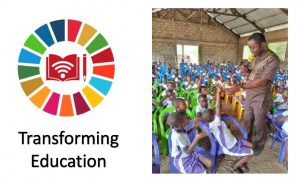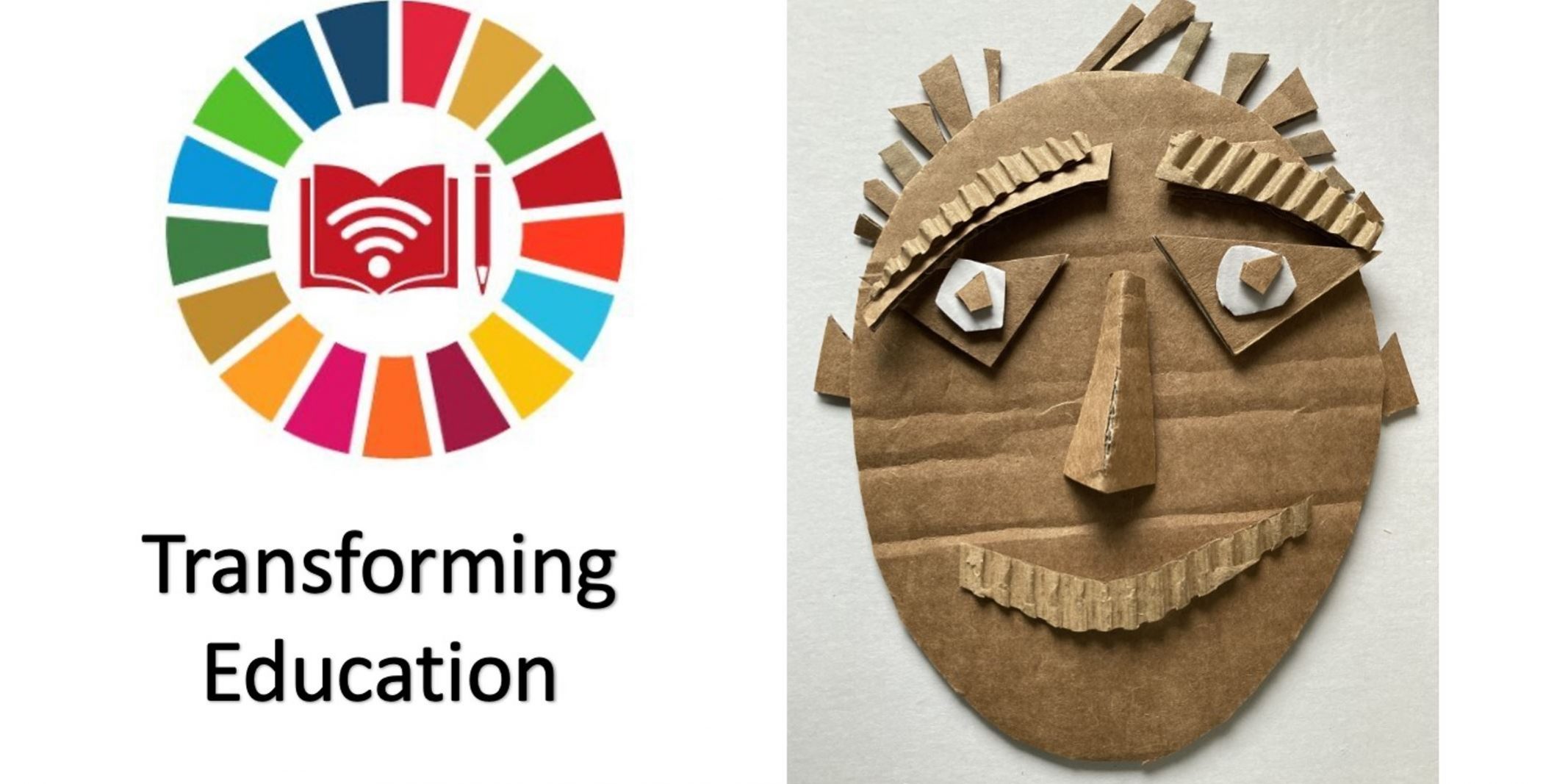A Second Think Piece from Jasen Booten
An Urgent Call To Action
Transforming Education: ‘Quality Education Needs Change Makers’
As I write this second think piece, I am thinking of the close of the Transforming Education Summit and of World Teacher’s Day. The final day of the Summit saw the United Nations (UN) Secretary-General convene world leaders to focus effort and energy on tackling the global crisis in education. For me, as an educator, the Sustainable Development Goals (SDGs) deadline of 2030 feels worryingly close. Without a shadow of a doubt, the pandemic has dramatically impeded progress towards achieving SDG4: ‘Ensure inclusive and equitable quality education and promote lifelong learning opportunities for all’ (United Nations, 2022a). The inspiring speakers at the summit confirmed my belief that the world of education desperately needs change makers.
The UN declares that The 2030 Agenda for Sustainable Development is ‘an urgent call for action by all countries developed and developing – in a global partnership’ (United Nations, 2022b). Unsurprisingly, partnership is at the heart of the 2030 Agenda, which I would argue requires collective responsibility. If we are to support the needs of the poorest and most vulnerable citizens of all ages around the world, a collective of people with shared values needs to mobilize in a common cause. The ambition for change needs to be real, and put into action by a global community.
Importantly, the Transforming Education Leaders’ Summit was preceded by a Mobilization Day, which provided space and opportunity for students to express their voices to ministerial decisionmakers and policymakers. It was also a day to mobilize the wider learning community, including educators, young learners and the global public. Participants were passionate in their call for a sense of collective efficacy; hoping that a shared belief in quality education would lead to collective action, agency and positive change.
As an associate for The Curriculum Foundation, I have worked closely with teachers and leaders in Ghana, with a shared ambition to strengthen foundational language and literacy skills in rural schools. I am a strong advocate of professional collaboration (Hargreaves & O’Connor, 2018), and am in the privileged position to work alongside inspirational African change makers. I must admit, that a key motivation for writing this piece is to shine a light on the incredible efforts of one particular change maker, Mathias Tulasi, a secondary school teacher in the Ho-Volta Region of Ghana. Mathias leads ‘Literacy Ambassadors Ghana’, a movement with a mission to develop foundational literacy skills, especially reading, for students and their families in rural communities. Mathias truly lives by his mantra: ‘A reading nation is a winning nation’.
The accountability and advocacy organization Human Capital Africa (HCA) paints a bleak picture for the African nation’s future prosperity if the teaching and learning of reading is not prioritized: ‘Third graders who cannot read on grade level today are on track to be our nation’s lowest income, least skilled citizens’ (Human Capital Africa, 2022).
It is heartening though to read HCA’s philosophy statement which explains: ‘sufficient resources (knowledge and data) already exist in the ecosystem and there are other qualified partners that are already leading meaningful work. We aim to bring those efforts together to amplify their impact’ (Human Capital Africa, 2022).
As a Curriculum Foundation Associate, I believe that by working in partnership we too can amplify the voices and impact of community change makers around the globe. It is worth reiterating words in the title of this think piece: ‘Quality Education Needs Change Makers’.
A reminder of pertinent SDG4 action points (United Nations, 2022a):
Goal 4. Ensure inclusive and equitable quality education and promote lifelong learning opportunities for all.
4.1 By 2030, ensure that all girls and boys complete free, equitable and quality primary and secondary education leading to relevant and effective learning outcomes.
4.2 By 2030, ensure that all girls and boys have access to quality early childhood development, care and pre-primary education so that they are ready for primary education.
4.6 By 2030, ensure that all youth and a substantial proportion of adults, both men and women, achieve literacy and numeracy.
References
Hargreaves, A. & O’Connor, M. (2018) Collaborative professionalism: when teaching together means learning for all (1st ed.). Thousand Oaks, CA: Corwin.
Human Capital Africa (2022) Human Capital Africa Call To Action 2022. Retrieved from: https://humcapafrica.org/2022/03/31/human-capital-africa-call-to-action-2022/ [Accessed 15 September 2022].
United Nations Department of Economic and Social Affairs Sustainable Development (2022a) Transforming our world: the 2030 Agenda for Sustainable Development. Retrieved from: https://sdgs.un.org/2030agenda [Accessed 15 September 2022].
United Nations Department of Economic and Social Affairs Sustainable Development (2022b)
Do you know all 17 SDGs? Retrieved from: https://sdgs.un.org/goals [Accessed 15 September 2022].

A first think piece by Jasen Booton, Curriculum Foundation Associate.
Transforming Education: Building Forward Together and Teaching Differently
After several years of living in uncertain times through a pandemic, stakeholders around the world are unified in the need to advance the 2030 Sustainable Development Goal on Education (SDG 4). The UNESCO report “Reimagining our futures together: A new social contract for education” (UNESCO, 2021) makes a clear argument for the transformative power of education. The report advocates support for ‘pedagogies of cooperation’ needed to develop the range of competencies young people need to flourish and thrive in the 21st Century. This raises two key questions: which pedagogical approaches should educators cooperate on; and which competencies would best drive learning forward?
In the context of my own work in Ghana, as an Associate of the Curriculum Foundation, I have seen ‘pedagogies of cooperation’ approach in practice, fostering exploratory partnership discussions around the learning and teaching of foundational language skills among teachers and school leaders. Professional collaboration has been key in growing positive and trusting relationships (Hargreaves & O’Connor, 2018). The fundamental pedagogical approach has been inquiry, facilitated through coaching and mentoring conversations involving discussions around dilemmas and barriers to language learning. Teacher guides and resources were co-designed with practitioners and were very much starting points; providing a menu of ideas for teachers to adapt and change to suit their needs and context.
The ‘pedagogies of cooperation’ approach helped to scaffold productive partnerships where teachers supported each other in creatively addressing shared challenges. Even the most basic of everyday materials – cardboard, rocks or sticks – could be viewed as a teaching tool or learning resource. However, this required significant departure from typical and well-rehearsed teaching methods and deeply entrenched beliefs about how children learn. Through exploratory partnerships teachers were able to better explore and broaden their teaching repertoires of teaching strategies and resources.
This leads us to pose the question: which competencies might teachers develop to accelerate foundational language learning forward?
In the UK, I acknowledge that teachers often design curriculums to include opportunities for hands-on learning as a means of engaging pupils in exploration and inquiry. Faced with large class sizes and limited resources, the teachers I supported in Ghana were more comfortable with teaching and instructing from the front. Practitioners pointed out that dialogic learning (talk for learning) and hands-on practical activities were not typical teaching practice in rural Ghanian settings, especially for English language development. This posed a significant challenge to promoting new ways of learning to develop 21st Century competencies. Our coaching conversations focused on how to foster learners’ curiosity as a key competency, offering practical suggestions as opposed to directing teachers to fixed approaches. Respect for where teachers were at in their thinking, and actively listening to teachers’ developmental needs, resulted in the implementation of more practical, hands-on language learning activities. Teachers were not made accountable for their explorations in an authoritative, compliance and monitoring sense; the aim was to grow teachers from their starting points and create a culture of collective responsibility. An ecology of development. Small and positive changes fostered teacher self-efficacy; a belief that teaching differently was within their capability, influence and control. Recognition and praise must be given to the inspirational work of the Practical Education Network (PEN) for their mission to develop hands-on STEM learning in schools across Ghana. PEN has recently partnered with Ghana Education Service to train science teachers throughout Ghana to use local materials to promote active teaching and learning. Clearly the pedagogical approach of inquiry is fundamental for science learning and teaching, but how might a practical, inquiry approach also strengthen language learning across the curriculum? At the Curriculum Foundation we are looking at how we can support PEN’s vision for engaging, hands-on teaching and learning in Ghana and other countries in Sub-Saharan African.
In conclusion, it is worth highlighting a significant point from Human Capital Africa’s call to action (2022):
‘Review and implement what works: For far too long, countries have implemented interventions that simply do not work. In contexts where resources are already scarce, national leaders must commit only to implementing interventions proven to work. We invite decision makers to acquaint themselves with these proven interventions and equip their education teams only to implement what works.’
At the Curriculum Foundation we are advocates of evidence-informed interventions, however we would also strongly call for the implementation of evidence-informed pedagogical approaches, such as inquiry. We are keen to work alongside educators, in their unique contexts, respecting the knowledge and experiences that they bring to the learning environment. We would argue that authentic cooperation is key for sustainable and achievable pedagogies. This takes us back to the significance of the title chosen for this think piece; in pursuit of transforming education, all stakeholders need to be committed to building forward together and be ready to embrace the learning opportunities that teaching differently may bring.
References
Hargreaves, A. & O’Connor, M. (2018) Collaborative professionalism: when teaching together means learning for all (1st ed.). Thousand Oaks, CA: Corwin.
Human Capital Africa (2022) Human Capital Africa Call To Action 2022. Retrieved from: https://humcapafrica.org/2022/03/31/human-capital-africa-call-to-action-2022/ [Accessed 7 July 2022].
UNESCO (2021) Reimagining our futures together: a new social contract for education. The International Commission on the Futures of Education, UNESCO.
